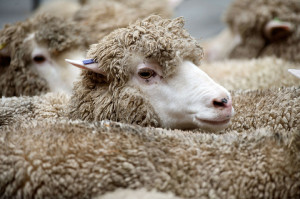A superfit, special forces legend from Gloucestershire who carried out a real-life “mission impossible” behind enemy lines has died after developing the human form of Mad Cow Disease.
 Father-of-three Mark Phillips MBE was just 56 when he died earlier on August 12 and was well-know figure in military circles for his brave exploits in Afghanistan and Iraq.
Father-of-three Mark Phillips MBE was just 56 when he died earlier on August 12 and was well-know figure in military circles for his brave exploits in Afghanistan and Iraq.
Known as Lt. Colonel Mark ‘Foggy’ Phillips of the Special Boat Squadron, he is said to have being diagnosed with Sporadic-Creutzfeldt-Jakob Disease in June. It is so rare that only one in one million people develop it.
It is believed that Mr Phillips attended Balcarras School in Cheltenham before embarking on an outstanding military career which saw him join the SBS in 1987 and become one of its fittest and most respected officers.
Commandant General of the Royal Marines, Major General Rob Magowan, led the tributes to the officer who is said to have carried out hundreds of forays behind enemy lines, including an audacious mission to blow up Saddam Hussein’s telecommunications cables buried under a sports arena near the centre of Baghdad.
Sources say diversion was created so Lt Col Phillips and his SBS team could fly in on Chinooks at low altitude to avoid the radar and then then plant hundreds of pounds of explosives.
An SBS source told the Daily Mail that many of those in the know did not expect them to make it back alive from the 1991 raid because it was the “It was the proverbial ‘mission impossible’.”
But it was so successful in bringing down Iraqi communications during the first Gulf War that a piece of cable recovered from the scene was later put on display at the Imperial War Museum.’
The military man returned to Iraq in 2003 with the SBS and in 2008 he was said to have joined a special UK-US Special Forces unit known as Task Force 42 which tracked Taliban commanders.
Major General Magowan said: “Foggy was an inspiration, both to me and across our Corps. Bright, physically strong, courageous, hugely visionary and immediately engaging, he had all the attributes of a Royal Marine.
“People were swept up by his energy and leadership. I first met him on an adjacent rowing machine and I must admit to feeling intimidated. As an organisation, we are considerably less rich with his passing.”
Although he kept out the public eye, he was also known as an athlete and the 1990s he won the 125-mile Devizes to Westminster canoe race, which has previously won by Paddy Ashdown and Ranolph Fiennes, four times in succession.
Organisers paid tribute to him on the event’s Facebook page and said: “His athletic feats are legend and amongst these achievements, he was a 4 times winner of the Devizes to Westminster canoe race.
“Lt Col Mark Phillips MBE, Royal Marines was a professional of the highest order – we will be hard put to meet his like again.”
According to his LinkedIn profile he left the military in 2013 and had his own security business.
A death notice in GloucestershireLive read: PHILLIPS M.B.E. Mark Sadly passed away on 12th August 2017 after a short illness. “Husband to Jacqui and father to Emily, George and Bethany. Son of Brian and Pat and brother to Stephen and Adrian. Funeral service will take place at Milton Abbey, Dorset on 25 August.”
 In a case report, researchers said the 61-year-old was brought to Rochester Regional Health in 2015 saying he was having trouble thinking, he was losing touch with reality and he couldn’t walk.
In a case report, researchers said the 61-year-old was brought to Rochester Regional Health in 2015 saying he was having trouble thinking, he was losing touch with reality and he couldn’t walk.



 In Aug., 1997, Joseph Berger, Erick Weisman and Beverly Weisman of the University of Kentucky reported in The Lancet
In Aug., 1997, Joseph Berger, Erick Weisman and Beverly Weisman of the University of Kentucky reported in The Lancet